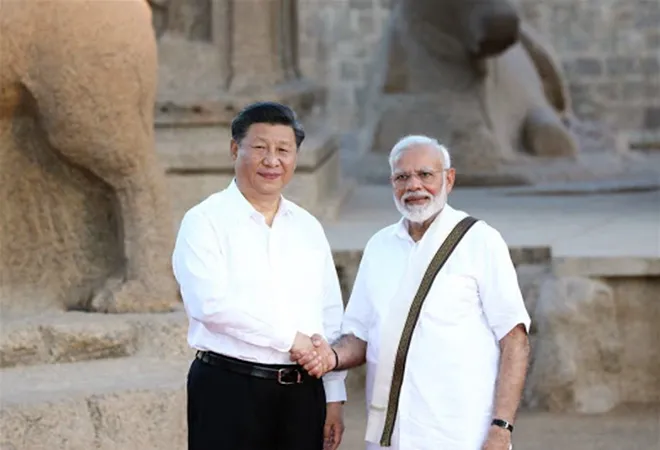In a recent analysis of China’s approach to the border dispute, China scholar M Taylor Fravel wrote that Beijing has viewed the border with India as a “secondary strategic direction”. Its primary focus is in an arc from Japan, past Taiwan to the South China Sea, a border which the US has continued to press on the past 70 years. China acts on this south-western secondary direction, when it feels that India is threatening its claims or stability. Its purpose is to restore the situation, “but not to impose a final settlement”. His assessment is that China was unlikely to change its approach in the near term, especially since the US has become more active in the western Pacific.
Reading minds in Zhongnanhai, the Beijing compound where the leadership of the Communist Party of China works and resides, is never easy. It’s difficult to judge from the tone and tenor of its ministers like Wang Yi as to what they are thinking. Note that Wang is not even in the Central Foreign Affairs Commission, the body that really makes foreign policy in China. And when it comes to the Indian border, the PLA has always retained a certain primacy. Currently, the eastern Ladakh situation looks dangerous. Both sides have massed forces and have the capacity to launch localised attacks. But neither seems to have gathered the numbers or made preparations that would go into a larger war. It could be argued that both sides realise the situation is deadlocked, with no prospect for further loss or gain.
Diplomatic channels have remained open and hype, the handmaiden of the Modi government, has been largely absent – but for some over analysis of India’s defensive deployments near Chushul and the hundred articles written on the arrival of five Rafales. Both sides continue the rounds of talks between diplomats and military officials, as well as maintain ministerial contact. There has been talk of new CBMs, but with the spectacular failure of the older ones it defies imagination what they could be.
Actually, the time has come for the two sides to settle their dispute, or, settle down on a mutually acceptable LAC. Trading off claims can hardly be harmful to India, given the godforsaken terrain of Aksai Chin. Nehru understood that well, but was unable to finesse the endgame. Modi has considerable political authority and doesn’t carry Nehru’s burden on either J&K or Ladakh. A lot of the work, to give diplomatic gloss to such a settlement, has already been done by the Special Representatives. It’s time Modi and Xi bit the bullet and moved ahead.
Xi bears the main responsibility here, having roiled the situation in the first place. China is probably not aware of the emotions in this country. Most Indians see the current rupture as being similar to that of 1962. Xi cannot be unaware that the US is seeking to draw India into the western Pacific theatre. New Delhi has hedged, but the growing power imbalance with China is forcing its hand. The texture of Indo-US military relations is improving and recent official US comments on Chinese aggressiveness in the Himalayas are a signal. In the last couple of years, with the rise of the Indo-Pacific notion, the south-western and western strategic directions could well be merging.
For the CPC and PLA, the issue will be framed in the manner of Fravel – from the military point of view. China can step up its deployments, pin down India in an expensive and extensive deployment along the Himalaya. New Delhi will still retain sufficient capacity to pose a threat to China in Tibet. This will detract Beijing from its focus on its primary strategic direction which has now reached a dangerous phase with both Taiwan and the US. Pushing India to join that enterprise is hardly something that China would want.
This commentary originally appeared in The Times of India
The views expressed above belong to the author(s). ORF research and analyses now available on Telegram! Click here to access our curated content — blogs, longforms and interviews.

